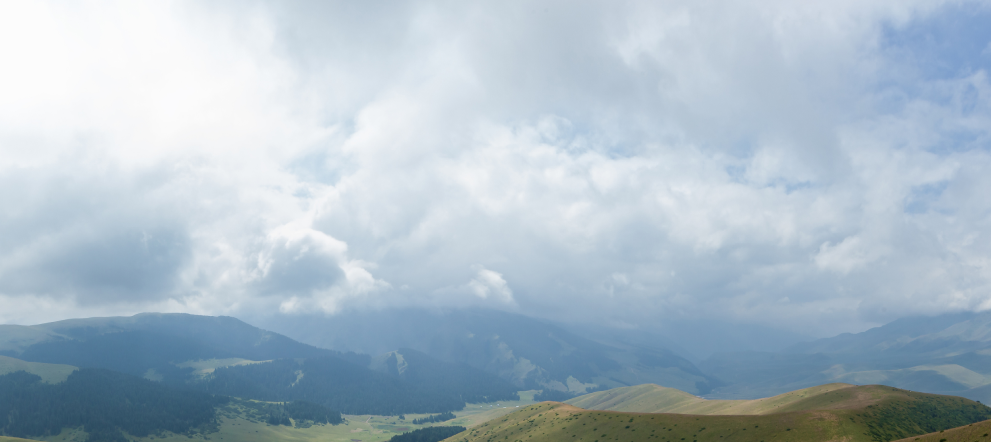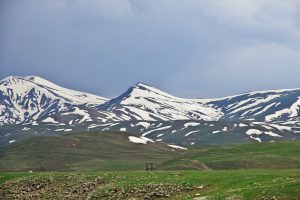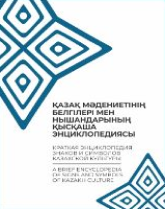




The idea of the sanctity of mountains, characteristic of many cultures of the world and of the Turkic peoples, is due, among other things, to the perception of mountains as a link between the earth and the sky, between the upper and lower worlds. The embodiment of the world mountain among the Kazakhs is Kök Töbe (literally, blue/light blue mountain), on which the Baiterek (world tree) grows. According to the traditional beliefs of the ancient Turks, the spring, the lake, the valley and the mountains have their own spirit master. For example, among the Turks of southern Siberia (Altai, Khakas, Tuvans ) there are several components of the tradition of mountain worship: annual collective prayers, construction of an obo on the slopes of the sacred mountains, etc. In many Turkic epics, the mother of folk heroes is represented by the mountain Otukan, which was worshipped by the ancient Huns. In general, the cult of the mountain peaks was part of the worship of the sacred Jer-Su (earth-water) among the ancient Turks.
One of the bright manifestations of the cult of the sacred mountains among the Kazakhs is the practice of worshipping the mountains of Ulytau (Great Mountain) and the popular figurative expression “Ūlytauğa bardyn ba, Ūlar etin zhedin be”. On the one hand, it describes the historical events of the first meeting of representatives of three hundred families from all three Kazakh zhuz in Ulytau, who left their ancestral tamgas on the sacred stones of these mountains as a sign of unity against a common enemy. Secondly, the origins of the sacred character of these mountains and the inviolability of the oath taken in the ritual consumption of the flesh of the sacred bird Ular.
No less important in Turkic culture is the mountain pass, which has a complex semantic content: It symbolizes the transition, the swaying of the plains, the ascent and descent. To this day, the Kazakhs tie ribbons (scraps of cloth) at difficult passes as a sign of safe passage.


